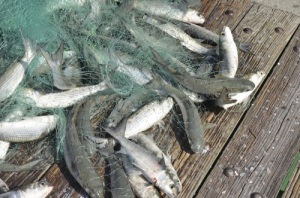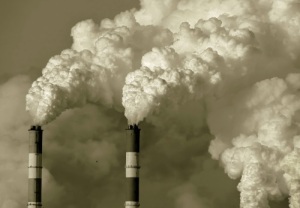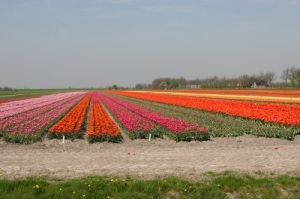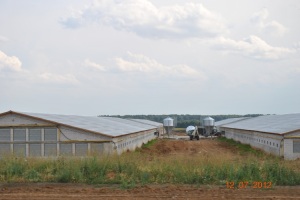Worldlog Settimana 44 – 2014
Comincero’ questa settimana con una novita’ dall’Europa. Il nostro parlamentare europeo Anja Hazekamp si e’ impegnata per raggiungere un divieto sulle reti enormi per pescare. Tantissimi pesci spada e tonni cercano di sopravvivere dentro a queste reti fino alla morte. Ma anche gli uccelli, delfini, orche e tartarughe restano incastrati e muoiono lentamente.

Gia’ nel 1992, le Nazioni Unite hanno deciso di vietare le reti che galleggiano, poiche’ oltre alla specie di pesce che cercano di pescare sono incastrati sempre anche tanti altri specie di pesci. Ma l’Unione Europea ancora non ha rimosso definitivamente le reti dall’acqua. Per abolirle definitivamente, la Unione Europeo ora propone un divieto totale. Super! Ma ancora siamo in attesa poiche’ il Parlamento Europeo ha molti partiti che cercano di bloccare il divieto di reti 🙁
In piu’, mia collega Esther Ouwehand ha proposto una mozione per evitare di andare avanti con l’accordo commerciale con la Canada se non viene rispettato il divieto di petrolio di sabbia. Il petrolio di sabbia e’ l’energia fossile piu’ inquinante sulla terra, responsabile per tre a cinque volte l’emissione di CO2 rispetto al petrolio normale.

L’Unione Europea ha recentemente firmato un accordo con la Canada sul commercio libero. Di conseguenza e’ diventato impossibile vietare l’importo di petrolio di sabbia. Vogliamo quindi che il nostro governo non controfirmi l’accordo con Canada!
E restiamo ancora un po in Europa. La settimana scorsa abbiamo fatto delle domande alla Camera sugli incentivi europei per la promozione di fiori che contengono molto veleno. L’associazione dei fiori olandese (Bloemenbureau Holland) riceve degli incentivi europei per una campagna promozionale. Questo budget viene da un incentivo inteso per prodotti alimentari europei ed e’ inteso specialmente per alimentari, quindi non per fiori. Non copiamo perche’ dobbiamo pagare le tasse per questa cosa.

Nella produzione di ad esempio il giglio (che viene promossa con soldi dalle tasse), viene utilizzato quasi 100 kg all’anno per ogni ettare. Questa pratica ha delle conseguenze sulla salute, la qualita’ dell’acqua e la biodiversita’. Vogliamo tra le altre cose che il nostro governo protesti con la Commissione Europea contro la promozione dei fiori!
La settimana scorsa abbiamo anche fatto delle domande sugli investimenti diretti del governo tramite i fondi pensioni nelle megastalle all’estero. “Profundo” e’ un’associazione che ha effettuato un’investigazione che rileva che le associazioni finanziarie olandesi investono nelle megastalle e nello sviluppo della bioindustria all’estero.

Abbiamo ad esempio capito che i fondi pensioni degli olandesi che lavorano per il governo investono nella megastalla BRF in Brasile. Non esiste una legge che copre questa megastalla per quanto riguarda il benessere degli animali. Questo fondo pensione e’ anche investitore in “Charoen Pokphand”, un’azienda tailandese che costruisce dei pollai giganti in Cina. E questo fondo pensione aveva delle azioni dell’azienda brasiliana “Marfrig Alimentos”, che produce la carne. Ne sentirete ancora, piu’ avanti!
Saluto, Marianne
This week I would like to start with news from Europe because our MEP Anja Hazekamp has started fighting for a ban on mega fishing nets. Numerous swordfishes and tunas get stuck and struggle against death in these giant fishing nets. But also birds, dolphins, whales and sea turtles become entangled in these nets and slowly die of suffocation.

The United Nations already decided in 1992 that the use of driftnets had to be prohibited because it caused overfishing and massive by-catches. But the European Union still hasn’t had the nets removed from its waters. The European Commission is now proposing a complete ban to stop the use of driftnets permanently. Brilliant! But it still isn’t over yet because a large number of parties in the European Parliament are trying to block the ban on driftnets 🙁
Additionally, my colleague Esther Ouwehand filed a motion to not enter into a trade agreement with Canada if they do not observe the import ban on tar sands oil. Tar sands oil is the most polluting fossil fuel on earth, representing three to five times the CO2 emission of conventional oil.

The European Union recently entered into a Free Trade Agreement with Canada, which makes the agreed import ban on tar sands oil impossible. That’s why we call on our government to not ratify the Free Trade Agreement with Canada.
And we’re not leaving Europe yet. Last week we raised parliamentary questions about the European subsidies for the promotion of flowers that contain many toxins. It is a fact that the Bloemenbureau Holland (Flower Council) receives subsidy from the European Union for its promotion campaign. The budget is received from the subsidy scheme for European agricultural products and is especially intended for food (thus not for flowers). We can’t understand why the taxpayer has to contribute to this.
For example, 100 kilos of agricultural pesticides per hectare are used for the breeding of lilies (which are promoted with tax money) on an annual basis, with all associated consequences for public health, the quality of water and biodiversity. We call on our government to lodge a notice of objection with the European Commission to the promotion of flowers!
Last week we also raised questions about the indirect investments of public-sector workers through pension funds in battery farms and mega stables abroad. The research consultancy Profundo investigated this, and it appeared that Dutch financial institutions are investors in mega stables and in the developments of factory farming abroad.
For example, we learned that the pension fund of Dutch public-sector workers is a shareholder in the BRF mega stable in Brazil. There is no legislation for animal welfare in this mega stable. Also, the pension fund was a shareholder in Thailand’s Charoen Pokphand, which is building giant battery farms in China. And this pension fund also held bonds of the Brazilian meat company Marfrig Alimentos for the last four years. To be continued!
Greetings, Marianne